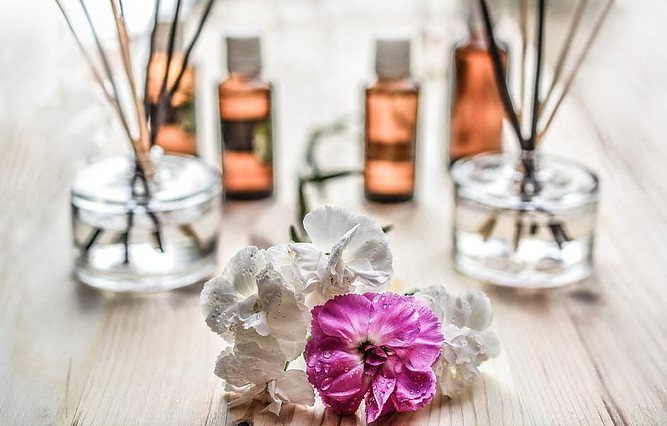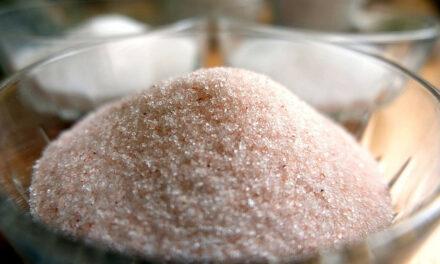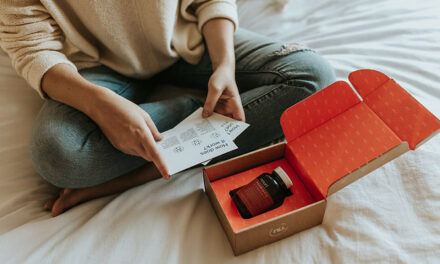Whether you’re sniffing the air appreciatively because of the amazing scent or perfume of lavender or you are turning your nose away from the pungent scent of ginger or ginger root oil, in this guide we will explore the relationship of essential oils to diabetes. Most importantly, the best essential oils for diabetes and essential oils to avoid with diabetes will be covered here with many more other useful facts.
Welcome to the world of essential oils.
Remember, these oils apart from their scents are quite popular because of how useful they are to the cosmetic and beauty industry. They are also the focus of an alternative field of medicine known as “Aromatherapy”.
The aromatherapy suggests that these oils have healing or medicinal powers and hence health benefits.
Read on to find more about these oils, how some can be beneficial to diabetics and also on the oils that are a no-no for diabetics.
Before anything let’s define essential oils.
What are Essential Oils?
They are oils containing concentrated compounds extracted from plants. These compounds are the essence of a plant, by that I mean, they capture the plant scents, flavor, and other properties.
Another name for essential oil is ethereal oils, or it can be called “oil of whatever plant it is extracted from”. For example, oil of lavender, oil of bergamot, etc.
The word “essential” attached to the oil does not mean that our body cannot do without it. The “essential” means the oil contains the plant essence (flavor and scents).
Essential oils are not a new trend, it has been used in historical times as a common remedy to various ailments like cold, infection, etc. and in production of perfumes.
Wondering How Essential Oils are Extracted?
Essential oils are extracted from plants through two major processes:
-
Distillation (by steam or water)
This involves extracting oils from plants through the process of heating them over water or passing steam through it.
-
Mechanical process (like cold pressing)
Cold pressing involves pressing or squeezing plant with a steel press to bring out the oil.
Other processes include expression, solvent extraction, etc.
Since essential oils contain concentrated compounds, they often smell, taste, etc. more powerful than the original plant they were extracted from.
Essential Oils vs. Carrier Oils
People often confuse essential oil with carrier oils. They are different. Essential oils are extracted from the aromatic leaves, barks, and roots of plants while carrier oils, when generally speaking, are vegetable oils that are extracted from the seeds, kernels, and nuts of plants. Though there are exceptions to these definitions.
Carrier oils are commonly used to dilute essential oils because essential oil when applied directly (without dilution) to the skin can irritate it or burn it.
Now, let’s look at the varieties of essential oils.

Types of Essential Oils
Essential oils are not limited to the bellow varieties.
- Yarrow oil
- Lavender oil
- Bergamont
- Eucalyptus oil
- Ginger oil
- Sandalwood oil
- Chamomile oil
- Tea tree oil
- Spearmint oil
- Peppermint oil, and
- Many more…
Benefits of Essential Oils
Here are some of the key benefits of essential oils.
-
They can relieve headaches or migraines
Some people find that dabbing a mixture of peppermint and lavender oil, or peppermint oil and methanol etc. to the skin on the forehead helps reduce headaches. More research needs to be done to back and confirm this claim, though.
-
It can relieve stress and fatigue
Some essential oils like lavender have the power to relieve stress and induce relaxation.
Combined with a carrier oil, they are applied to the body through the process of massaging. Also, this oil can be put in a diffuser so that they gradually diffuse into the air. Therefore, constant exposure to these oils can relieve stress.
However, the debate is, for how long does the stress relief effect last? Some say it lasts for 2-3 hours.
-
Some are used as a mosquito and other pest repellents
They are preferred because they don’t harm or pose a threat to the environment, unlike normal synthetic mosquito or pest repellents. Unfortunately, their effects only last for a few hours.
-
They are used to preserve foods
They can be used as a natural additive used to extend the shelf life of products.
-
They are added to cosmetics products
They are used in this case for their fragrance or any other qualities.
-
They are used to purify the air
-
They are used to boost moods
There is nothing like the pleasant smell of lavender to lift your mood when you are sad. Would you agree?

Tip: Here are the best essential oils for lightheadedness, vertigo and dizziness.
Like all ‘goods’ there are some challenges if you wouldn’t be careful.
Side Effects and Precautions of Essential oil
The majority of us have this misconception that just because something is natural, it is always safe. This is wrong.
I’m saying that the case with essential oil, herbal concoctions or mixtures, or plant-based products like supplements, etc. While they can be beneficial, they contain bioactive compounds that can be toxic or harmful to you.
Some of these side effects of essential oils are:
-
Allergies
-
Skin irritation
The most common manifestation is rashes.
One major advice from experts is not to apply essential oil directly to your skin. Always combine them with a carrieroil. They contain concentrated compounds that can irritate your skin, and that is why it is diluted with a carrier oil.
-
Headaches
-
Toxicity
Some essential oil can be toxic for prolonged use.
-
Asthma attacks
Inhaling essential oil may set off an attack for people who have asthma. For people who have diabetes or any other underlying medical condition, please do well to consult a doctor before using any essential oil or plant-based product.
Note that essential oil should never be swallowed or ingested because it can lead to complications and even death.
The question going on in your mind may be, “As a diabetic, can essential oils be beneficial to me?” or “when are essential oils would be beneficiary to me?” and “which essential oil is useful for me?”. Most importantly, as the main question, we will be answering in this article, “Which essential oils should I avoid as a diabetic?”

Before these questions are answered, let us see what diabetes is. (I am sure most of our readers know well about diabetes by now, but just in case to make sure I cover it all well here)
What is Diabetes?
Diabetes is becoming more and more widespread. It brings many health complications, and it is long-term. The Diabetic Research Institute Foundation reported that 30 million Americans have diabetes while on a worldwide scale, an estimated 422 million people have diabetes.
Diabetes is a disease condition whereby the level of glucose or sugar in your blood is very high. High levels of sugar are usually because insulin is insufficient or it is not produced at all or even that it is not even utilized.
The job of the insulin is to lower blood glucose level by allowing sugar to be taken up by cells to be used for energy.
Insulin is a hormone produced by a group of cells known as Islet cells in our pancreas.
Glucose or sugar is the smallest component that was broken or derived from the food we eat. It is our body’s main source of energy, meaning that it is used to perform various bodily functions.
There are many types of diabetes (including the infrequent ones) but here are the three major ones:
-
Type 1 diabetes
In this case, insulin is not produced by the islet cells in the pancreas. That is because the cells (islet) in the pancreas responsible for producing insulin are destroyed by the immune system.
This type of diabetes is also known as Juvenile diabetes because it occurs more in children and teens. However, adults can have it too.
About 5% of people who have diabetes have this type, so it is not that common.
-
Type 2 diabetes
In this case, insulin is produced, but it is ‘insufficient’. It can also be that it is produced, but the body resists it, meaning that the body is ‘insulin resistant’.
This type of diabetes is also known as non-insulin-dependent diabetes, and it is more common (90%) of all diabetes.
-
Gestational diabetes
It is diabetes that occurs in pregnant women, it usually disappears when the woman gives birth.
When is Essential Oil Useful for Diabetics?
We mentioned earlier that essential oils are known and exploited for their health benefits. However, are essential oils useful for diabetics? The short answer is Yes!
As of now, no research or scientific evidence is backing up the claim that essential oil can completely cure diabetics. There is also no substantial research that essential oil can lower blood sugar levels.
Instead, essential oils can be used to reduce or help manage some of the various complications that arise from or occur alongside diabetes. For example, it can be used to improve insulin sensitivity (for type 2 diabetes).
Some of the diabetes complications are skin ulcers, depression, stress, heart attack, high blood pressure, and skin conditions, etc. Essential oils believed to be helping with soothing those complications of diabetes.
Tip: Have high blood pressure? We reviewed doTERRA Essential Oils Effect on High Blood Pressure.
Here are some essential oils that can be useful in the management of diabetics:
- Coriander
- Cinnamon
- Bergamot oil
- Black pepper oil
- Lavender
- Black seed, and
- Many more…
Therefore, when an essential oil is useful is when it is used to manage diabetes.

(Please ignore the typo in this video – Dr Eric Zielinski talks about benefits of essential oils for type 2 diabetes here)
Tip: This article covers the best essential oils for corns and bunions on foot.
When Should You Not Use Essential Oil With Diabetes?
You should not use essential oil:
- If you notice a spike in the symptoms of your disease or any new complications or issues.
- Together with your drugs at the same time unless directed by a qualified doctor, because some essential oil can interfere with your medications.
- Directly on your skin. Always mix the oil with a carrier oil like almond oil, olive oil, etc. before application on your skin as it might irritate, etc.
Essential Oils You Should Avoid If You’re Diabetic
We have established that, if something is natural, it does not mean it is safe. The same can be said about essential oil.
Some oils are dangerous to diabetics, meaning that they can cause mild to serious complications and possibly even death. These oils either interact with the drugs you’re taking (refer to the section below) or they may interfere or exacerbate your already weakened immune system.
Here are some of the essential oils you should avoid as a diabetic.
- Angelica
- Rosemary
- Sage
- Hyssop
- Bitter almond
- Red thyme
- Tansy
- Wormwood

How Essential Oils Would Interact With Your Medicine for Diabetes
Essential oils can be used by either diluting it with carrier oils like coconut oil and applying or massaging into the skin, or by inhaling
through the nose.
You should never ingest essential oil at least not without the proper guidance of a qualified doctor.
So, do they interact with your medications? Yes, some essential oils interact with the drugs we take.
Before we go into how they interact, there are two ways that essential oil enters our body:
-
Through skin
When we apply essential oil mixed with a carrier oil on our skin, it enters through the skin follicle, sweat glands, and it is then absorbed via the body’s fluid.
-
Through inhalation
When we inhale it directly through our nostrils or breathe it in when it is diffused in the air. It is then absorbed into the bloodstream.
When they are finally inside our body. These essential oils interact with the medication by either:
- Competing with the diabetic drugs you are taking to bind to plasma proteins and tissues where these drugs normally bind or stick to.
- Inducing (increase) or inhibiting (stopping) CYP enzyme activities responsible for drug metabolism.
For example, the lemon tea tree and Litsea inhibit drugs metabolized by the enzyme CYP2B6.
- They could change our digestive system flora and motility, thereby inhibiting the efficacy of medications.
Also, some essential oils like lemon oil, orange oil and other oils derived from the citrus family contain this active compound “furanocoumarin”. This compound has been found to inhibit intestinal P-glycoprotein, which can raise your medication or drug level above normal.
If you have to use essential oils that have the potential to interact with medications, it is important to meet your doctor. The doctor can then assess the risks and can either tell you to stop using the essential oil or medication first, or work out a way to use it without it interfering with your drug.
Conclusion
In summary, the essential oil contains bioactive compounds extracted from plants. These oils have various uses ranging from treating infection to its usage as a natural pesticide to stress relief to managing diabetes, etc.
However, care should be taken as some of these oils can be dangerous to you as a diabetic because they are not always safe and can worsen your condition. They do so by interfering with your medications, raise your blood pressure, cause new complications or symptoms to develop, and possibly even death.
If you want to use essential oil as a diabetic either to manage your condition or as a way to freshen your home, the key is to seek the advice of a qualified medical doctor.
Tip: Here are the best supplements for stress and anxiety.






